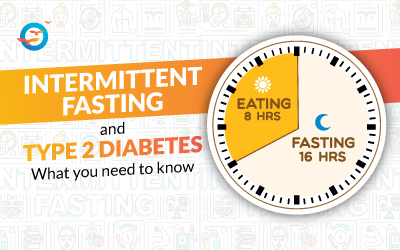Sun Protection and Diabetes: Why It's Important and How to Stay Safe?

As the sun's rays grow stronger with the approach of summer, it's crucial for everyone, especially those with diabetes, to understand the importance of sun protection.
While most people are aware of the risks of sunburn and skin cancer, individuals with diabetes face additional challenges and considerations when it comes to sun exposure.
Why Sun Protection Matters for People with Diabetes
1. Increased Risk of Skin Issues:
Diabetes can affect the skin in various ways, making it more susceptible to sun damage. People with diabetes are prone to skin conditions such as diabetic dermopathy, necrobiosis lipoidicadiabeticorum, and diabetic blisters, which can be exacerbated by sun exposure.
2. Delayed Wound Healing:
Diabetes can impair the body's ability to heal wounds, including sunburns. Prolonged sun exposure can lead to severe sunburns that may take longer to heal in individuals with diabetes, increasing the risk of infection and other complications.
3. Higher Risk of Skin Cancer:
Research suggests that individuals with diabetes may have an increased risk of developing certain types of skin cancer, such as squamous cell carcinoma. Sun exposure is a known risk factor for skin cancer, highlighting the importance of sun protection for people with diabetes.
4. Heat Sensitivity:
Some individuals with diabetes may be more sensitive to heat, which can lead to dehydration and heat-related illnesses. Staying protected from the sun's rays can help prevent these issues.
5. Sun Stroke:
Sunstroke, also known as heatstroke, is a serious condition that occurs when the body overheats due to prolonged exposure to high temperatures, usually in combination with dehydration. It can be a life-threatening emergency if not treated promptly.
Symptoms of sunstroke include a high body temperature, rapid pulse, throbbing headache, dizziness, nausea, confusion, and unconsciousness. This condition needs Immediate treatment.
Sun Stroke Treatment
Involves moving the person to a cool, shaded area, removing excess clothing, and cooling the body with cold packs or water. It is crucial to rehydrate the person with water or oral rehydration solutions. Use of black/ green tea bags cooled / frozen on the place of sun burns. Application of onion juice on the soles of feet also helps in recovering sunstroke.
Sunstroke can be prevented by staying hydrated, avoiding prolonged exposure to high temperatures, and wearing lightweight, loose-fitting clothing.
For hydration one can use any of the following:
- Use of coolants like cucumber, aloe vera ( which is a natural sunscreen too), and rose petals.
- Carrying Shahi Pani (Water, chia seeds, few kesar strands and lemon Juice) is also an excellent way to stay hydrated.
- Use of infused water with cucumber, lemon, mint leaves during the sun time can be added.
- Use of ashgourd juice is excellent coolant and can be protective.
- Rose petals iced tea is excellent for prevention as well as remedy of sun burns.
How to Stay Safe in the Sun?
1. Use Sunscreen:
Apply a broad-spectrum sunscreen with an SPF of at least 30 before going outside. Reapply every two hours or immediately after swimming or sweating.
2. Seek Shade:
Stay in the shade, especially during peak sun hours between 10 a.m. and 4 p.m. When outdoors, use umbrellas, hats, or other protective clothing to shield your skin from direct sunlight.
3. Stay Hydrated:
Drink plenty of water to stay hydrated, especially when spending time in the sun. Dehydration can worsen the effects of heat and sun exposure.
4. Protect Your Eyes:
Wear sunglasses that provide 100% UV protection to protect your eyes from harmful UV rays.
5. Check Your Skin Regularly:
Perform regular skin checks to monitor for any changes or abnormalities, such as new moles or lesions. Promptly report any concerns to your healthcare provider.
6. Consult Your Healthcare Provider:
If you have diabetes, speak with your healthcare provider about any specific sun protection recommendations or precautions you should take based on your individual health needs.
Conclusion
Sun protection is essential for everyone, but it is especially important for individuals with diabetes due to their increased risk of skin issues, delayed wound healing, and higher risk of skin cancer.
By taking proactive measures to protect their skin from the sun's harmful rays, individuals with diabetes can reduce their risk of developing sun-related complications and enjoy a safer and healthier summer.
Read the FAQs:
-
Why is sun protection important for people with diabetes?
Diabetics are at higher risk for skin damage, including sunburn and infections, due to potential circulation and immune system issues. -
How can I protect my skin from the sun if I have diabetes?
Use broad-spectrum sunscreen, wear protective clothing, seek shade, and avoid peak sun hours to reduce UV exposure. -
Does diabetes affect how my skin reacts to the sun?
Yes, diabetes can make skin more susceptible to damage, leading to a higher risk of sunburns, infections, and slower healing. -
Can sun exposure affect blood sugar levels in diabetics?
Extreme sun exposure can cause dehydration, which may impact blood sugar control. Staying hydrated and managing blood sugar levels is important.

